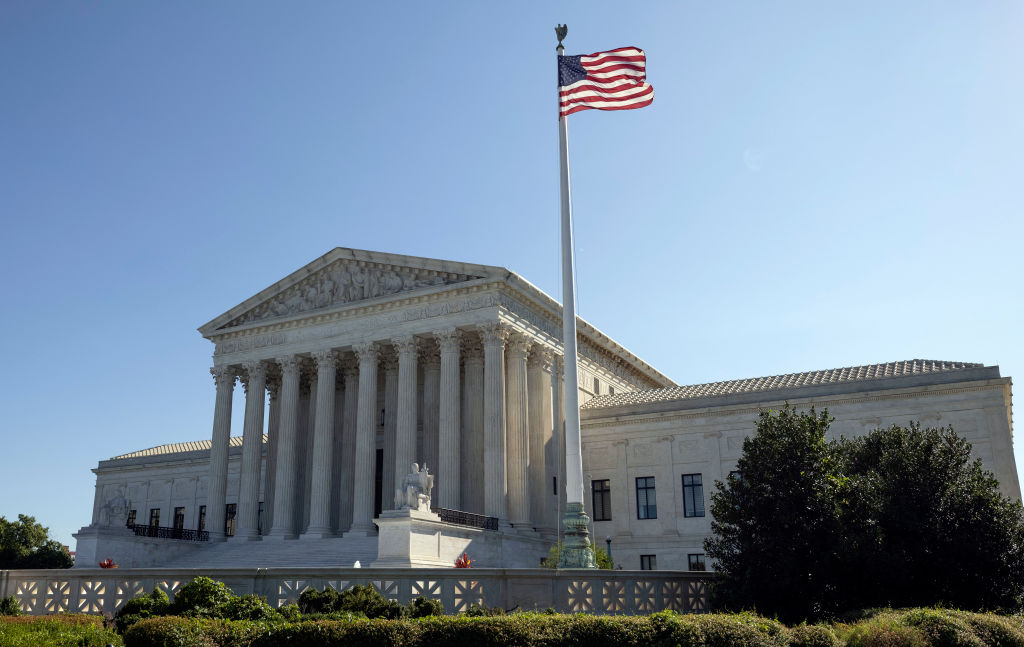The Supreme Court has scheduled arguments for Dec. 1 regarding a Mississippi case that seeks to overturn the long-standing Roe v. Wade decision that legalized abortion in the United States.
The Mississippi case will serve as the first major abortion-related case to be heard in the Supreme Court under the new conservative 6-3 majority following the confirmation of Justice Amy Coney Barrett in October 2020.
Just in: Supreme Court will hear direct challenge to Roe v. Wade in Mississippi case on December 1.
— Ariane de Vogue (@Arianedevogue) September 20, 2021
The case will address Mississippi’s Gestational Age Act passed in 2018. The act, blocked by two federal courts, generally prohibits abortion after 15 weeks, allowing exceptions only in the case of “medical emergencies or for severe fetal abnormality.” As ABC noted, it has no exceptions for rape or incest.
The brief in the case of Dobbs v. Jackson Women’s Health Organization argued that Roe v. Wade and another landmark abortion decision, Planned Parenthood v. Casey, were erroneously decided.
“Under the Constitution, may a State prohibit elective abortions before viability? Yes. Why? Because nothing in constitutional text, structure, history, or tradition supports a right to abortion,” read the introduction to the brief, filed by Mississippi Attorney General Lynn Fitch.
After some technical discussion, it reiterates the point.
“Roe and Casey are egregiously wrong. The conclusion that abortion is a constitutional right has no basis in text, structure, history, or tradition …
Roe broke from prior cases, Casey failed to rehabilitate it, and both recognize a right that has no basis in the Constitution.”
It dealt with the complications the court’s previous rulings have imposed.
“Abortion jurisprudence has placed this Court at the center of a controversy that it can never resolve,” the brief added. “And Roe and Casey have produced a jurisprudence that is at war with the demand that this Court act based on neutral principles.”
The Wall Street Journal noted in July, when Mississippi appealed to the Supreme Court, that the state had originally argued the law did not violate court precedents, “suggesting that Roe be overruled only if the court found no other way to uphold the state law.”
In its actual argument to the court, however, it was much more direct. And abortion activists were
“Mississippi just said the quiet part out loud,” a statement from Planned Parenthood Action read, according to a July 23 report in The Washington Free Beacon. “This was always their end game: to have the Court overrule 50 years of precedent and allow states to ban abortion.”
“If Roe falls, half the states in the country are poised to ban abortion entirely,” said Nancy Northup, president of the Center for Reproductive Rights, the pro-abortion group representing Jackson Women’s Health Organization, The Wall Street Journal reported in July.
“Women of childbearing age in the U.S. have never known a world in which they don’t have this basic right, and we will keep fighting to make sure they never will.”
Pro-life groups, meanwhile, see the case holding the potential for a major victory.
In August, the Supreme Court rejected a request to stop an anti-abortion law in Texas from going into effect Sept. 1. The controversial law bans most abortions after the detection of a fetal heartbeat, generally at around six weeks of pregnancy.
The court’s decided 5-4 not to intervene.
Several pro-abortion groups have appealed to President Joe Biden and lawmakers to intervene. House Speaker Nancy Pelosi has said she will push for a vote on a new federal-level pro-choice bill later this month.
This article appeared originally on The Western Journal.
























